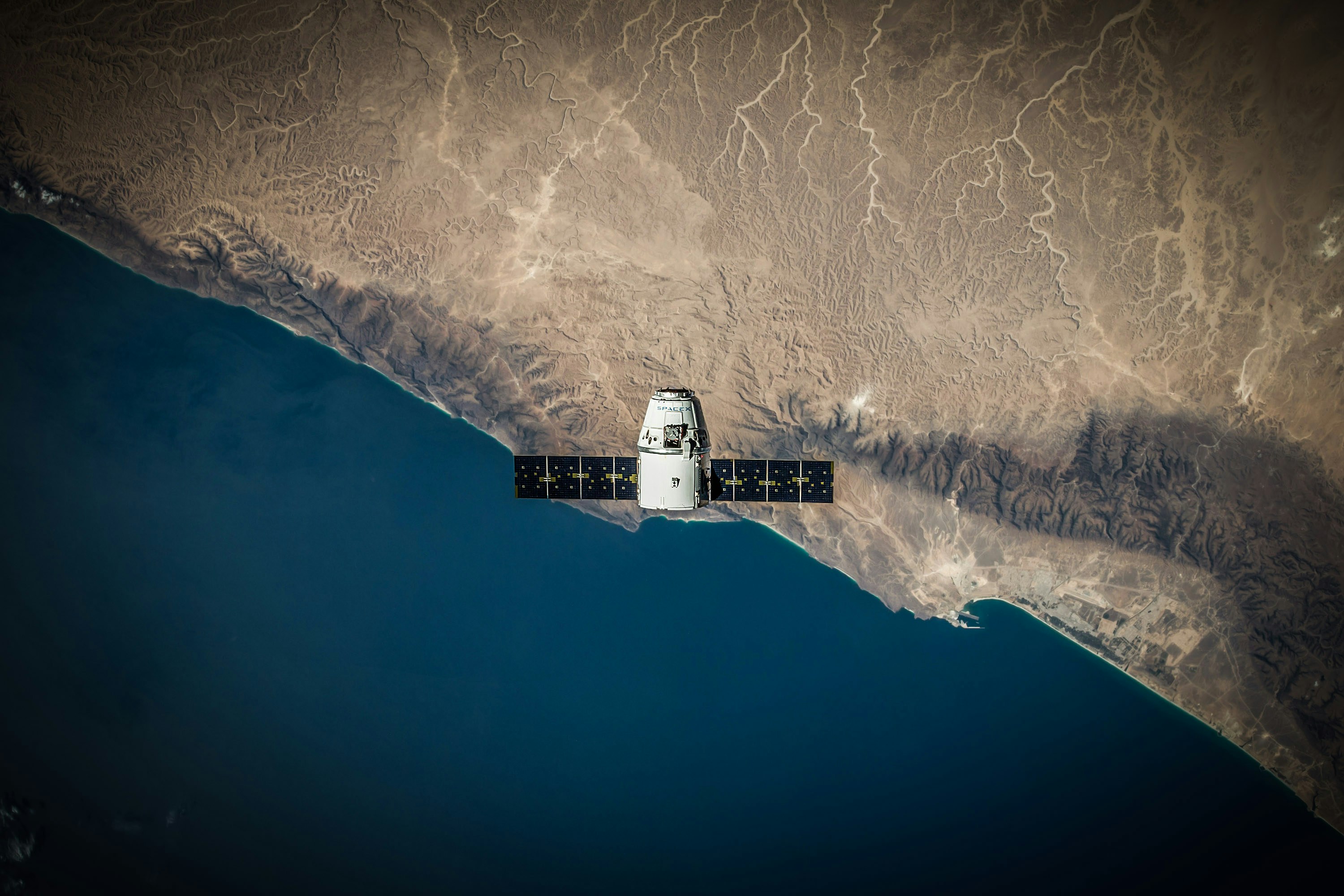In the ever-evolving landscape of global defense, a new era is dawning with the introduction of President Trump’s Space Force. With an increasing emphasis on technological capabilities and the ability to counter emerging threats, Space Force promises to revolutionize the way we approach national security. This article explores the significance of this groundbreaking initiative and its potential implications for the future of defense. From cutting-edge space technologies to strategic partnerships, join us as we embark on a journey through the cosmos of defense innovation.
The Birth of the Space Force
President Trump’s Space Force: A New Era of Defense. The proposal for a Space Force emerged under the Trump administration as a response to the growing importance of space in military operations. Recognizing the need for enhanced capabilities and dedicated focus on space-related activities, the United States government put forth a plan to establish a separate military branch specifically dedicated to space operations. This proposal marked a significant milestone in the history of space exploration and defense, paving the way for the creation of the Space Force.
The Proposal
The proposal for the creation of the Space Force aimed to address the evolving challenges and complexities of the space domain. It recognized that space had become a critical theater for national security, with immense strategic value and the potential to shape military operations. The proposal sought to establish an independent military branch solely responsible for space-related activities, ensuring a comprehensive focus on space-based capabilities and operations.
The Creation of a Sixth Military Branch
The establishment of the Space Force marked a historic moment, as it became the sixth branch of the United States Armed Forces. Building upon the existing military structure, the Space Force brought with it a renewed emphasis on space-based operations and led to the reorganization and realignment of existing space-related functions within the Department of Defense. This new military branch set the stage for a more specialized, highly trained, and dedicated workforce to handle the challenges and opportunities in space.
The Need for a Space Force
Securing U.S. National Security
The creation of the Space Force was driven by the need to ensure the security of the United States in an increasingly contested space environment. Space-based assets, such as satellites and communication systems, play a vital role in supporting military operations, intelligence gathering, and navigation. By establishing the Space Force, the United States aimed to protect these assets and maintain superiority in space to safeguard its national security interests.
Challenges in Space
Space poses unique challenges that require specialized attention and capabilities. The space domain is congested, contested, and competitive, with numerous actors vying for supremacy and advantage. The U.S. recognized the need to address these challenges head-on and develop strategies and technologies to navigate complex environments, such as dealing with debris, potential collisions, and interference from adversaries.
Defending Against Emerging Threats
The establishment of the Space Force was a proactive step to defend against emerging threats in space. As technology advances, the risk of potential adversaries developing anti-satellite capabilities or other disruptive technologies increases. The Space Force allows the U.S. to stay ahead of these threats, develop effective deterrence measures, and respond swiftly to any hostile actions in space.
Objectives of the Space Force
Space Superiority
One of the primary objectives of the Space Force is to achieve space superiority. This encompasses the ability to operate freely in space, maintain unhindered access to space-based assets, and deny adversaries the same capability. By focusing on space-based capabilities, the Space Force aims to ensure that the United States can establish dominance in this critical domain.
Space Situational Awareness
Another crucial objective of the Space Force is to enhance space situational awareness. This involves monitoring and tracking objects in space, identifying potential hazards or threats, and maintaining a comprehensive understanding of the space environment. By improving situational awareness, the Space Force can effectively protect its assets and respond to any developments that may impact national security.
Space Deterrence and Defense
The Space Force also plays a crucial role in space deterrence and defense. It aims to develop capabilities that deter adversaries from engaging in hostile actions in space, while also being prepared to defend against any threats posed to U.S. space-based assets. Through a combination of advanced technologies, strategic planning, and cooperation with other military branches, the Space Force strengthens the nation’s defense posture in the space domain.
Organization and Structure
Leadership and Command Structure
The Space Force operates under a distinct leadership and command structure. It is headed by a Chief of Space Operations, who is a member of the Joint Chiefs of Staff. The Chief of Space Operations oversees the Space Force’s activities, sets strategic priorities, and represents space-related interests at the highest military level. Additionally, the Space Force has its own organizational structure, with specialized units and commands focused on various aspects of space operations.
Collaboration with Other Military Branches
While the Space Force operates as a separate military branch, collaboration with other branches of the armed forces is essential. Space operations are inherently interconnected with land, air, and maritime operations, necessitating close coordination and integration. The Space Force works collaboratively with other military branches to ensure seamless cooperation and maximize the effectiveness of joint operations across different domains.
The Role of the Department of Defense
The Department of Defense (DoD) plays a critical role in supporting and overseeing the Space Force. It provides the necessary resources, including funding, personnel, and infrastructure, to enable the Space Force’s operations. Additionally, the DoD works in conjunction with the Space Force to develop policies, strategies, and acquisition programs for space-related activities. This collaboration ensures a unified approach to national defense and maximizes the overall capabilities of the U.S. military.
Recruitment and Training
Selection Process
Recruitment for the Space Force follows a rigorous selection process to identify candidates with the necessary skills, aptitude, and commitment to serve in the space domain. Various criteria, including physical fitness, technical expertise, and aptitude for space operations, are considered during the selection process. Additionally, candidates undergo thorough background checks and assessments to ensure their suitability for the specialized roles within the Space Force.
Specialized Training
Once selected, recruits undergo specialized training programs tailored to the unique requirements of the Space Force. These training programs cover a wide range of disciplines, including space systems operations, space control, satellite communications, and space surveillance. The training focuses on developing the technical expertise, operational knowledge, and critical thinking skills necessary to succeed in space operations.
Requirements and Qualifications
The Space Force has specific requirements and qualifications for individuals seeking to join its ranks. These include educational qualifications, such as degrees in engineering, computer science, or other relevant fields, depending on the desired career path within the Space Force. Physical fitness standards, security clearances, and a demonstrated commitment to service are also essential prerequisites for candidates.
Technology and Capabilities
Space-Based Sensors
Space-based sensors play a crucial role in the Space Force’s operations. These sensors, deployed on satellites and other platforms, provide critical data and intelligence, facilitate communication, and enable situational awareness in space. Advanced sensor technologies allow the Space Force to monitor space objects, track potential threats, and gather valuable information for strategic planning and decision-making.
Satellite Communication Systems
Reliable and secure communication is vital for space operations, and the Space Force invests in advanced satellite communication systems to meet this need. These systems ensure seamless communication between space-based assets, ground stations, and other military branches. By establishing robust and resilient communication networks, the Space Force enables effective command and control of space operations.
Anti-Satellite Weapons
The Space Force also develops and deploys anti-satellite capabilities to counter potential threats and protect U.S. space-based assets. These capabilities include various technologies, such as directed energy weapons, kinetic kill vehicles, and cyber capabilities, designed to disable or destroy adversary satellites. Anti-satellite weapons serve as a deterrent and demonstrate the Space Force’s ability to defend U.S. interests in space.
International Cooperation
Collaboration with Allies
The Space Force recognizes the importance of international cooperation in space activities. It actively seeks collaboration with allied nations, sharing information, resources, and expertise to enhance collective security and address common challenges. By fostering partnerships with like-minded countries, the Space Force promotes stability, transparency, and responsible behavior in space, ensuring a safer and more secure environment for all.
Space Treaties and Agreements
The United States is a signatory to various international treaties and agreements that govern space activities. The Space Force adheres to these treaties, ensuring compliance with international norms and obligations. By upholding these agreements, the Space Force reinforces the importance of responsible behavior in space and encourages other nations to do the same.
Avoiding Weaponization of Space
The Space Force is committed to preventing the weaponization of space. While it develops defensive capabilities to protect U.S. interests, it also advocates for the responsible use of space for peaceful purposes. The Space Force actively supports diplomatic efforts to prevent the proliferation of anti-satellite weapons and encourages international dialogue on space security to mitigate the risks of a space arms race.
Funding and Budget
Allocations for the Space Force
The establishment and operation of the Space Force require dedicated funding and budget allocations. The United States government, recognizing the importance of space activities, has allocated significant resources to support the development and expansion of the Space Force. These funds are utilized to acquire advanced technologies, invest in research and development, recruit and train personnel, and establish infrastructure for space operations.
Costs and Investment
While the creation of the Space Force incurs certain costs, it is seen as a necessary investment in national security. The United States prioritizes the allocation of resources to space-based capabilities, considering the critical role space plays in military operations and intelligence gathering. The costs associated with the Space Force are weighed against the potential benefits of enhanced space superiority, deterrence, and defense.
Impact on Other Defense Sectors
The establishment of the Space Force has led to some reallocation of resources within the Department of Defense. While the Space Force focuses primarily on space operations, it works collaboratively with other military branches on joint operations and mission support. The impact on other defense sectors is carefully managed to ensure the overall effectiveness and readiness of the United States armed forces.
Criticism and Controversy
Critiques of the Space Force
The creation of the Space Force has not been without criticism. Some argue that the establishment of a separate military branch for space operations is unnecessary and duplicative, as existing military branches already have space-related capabilities. Concerns have been raised regarding the cost and potential bureaucracy associated with setting up a new branch. However, proponents of the Space Force argue that it is crucial to have a dedicated focus on space to address the evolving challenges and achieve superiority in this domain.
Legal and Ethical Concerns
The Space Force has also faced legal and ethical concerns. The militarization of space raises questions about the potential weaponization of the domain and the implications for international security. Critics argue that the Space Force’s emphasis on offensive capabilities could lead to an escalation of hostilities or provoke other nations to develop similar capabilities. The Space Force takes these concerns seriously and strives to strike a balance between defense, deterrence, and responsible behavior in space.
Public Perception and Support
Public perception and support for the Space Force have varied. While some view it as a necessary step to protect national security interests and maintain strategic advantage, others question its importance and the allocation of resources to space-related activities. The Space Force continues to engage with the public, addressing concerns, and highlighting the significance of space operations for modern defense strategies. Efforts are made to educate the public about the role of the Space Force, its objectives, and its contributions to national security.
Future Outlook
Expansion of Space Operations
The Space Force is poised for growth and expansion in the coming years. As space continues to play an increasingly significant role in military operations, the Space Force will continue to develop and enhance its capabilities. This includes expanding its satellite constellations, improving space situational awareness, and exploring new technologies for space-based operations. The Space Force will remain at the forefront of space exploration, defense, and innovation.
Advancements in Technology
Advancements in technology will be a driving force behind the Space Force’s future capabilities. The development of next-generation satellites, advanced sensors, and faster communication systems will enable the Space Force to better monitor, protect, and utilize space resources. Additionally, technologies such as artificial intelligence and machine learning will play an essential role in enhancing space situational awareness and enabling faster decision-making in space operations.
Evolution of Defense Strategies
The Space Force’s establishment signifies a shift in defense strategies towards a greater emphasis on space-based operations. As space becomes increasingly vital to military operations, defense strategies will need to adapt and evolve accordingly. The Space Force will play a central role in shaping future defense strategies, ensuring that the United States maintains a competitive edge and protects its national security interests in the space domain.
In conclusion, the birth of the Space Force marks a significant milestone in the evolution of defense strategies. Recognizing the importance of space in national security, the United States established a separate military branch solely dedicated to space operations. The Space Force’s objectives, such as space superiority, situational awareness, deterrence, and defense, showcase its commitment to protecting U.S. interests in the space domain. As the Space Force continues to grow, collaborate, and harness advanced technologies, it will shape the future of space exploration, defense, and the wider defense strategies of the nation.









